The Vermont House is expected to pass the latest version of the Global Warming Solutions Act this week, setting up a likely veto fight.
A last-ditch effort by Gov. Phil Scott to convince lawmakers not to give citizens the right to sue the state if it misses its greenhouse gas emissions targets appears to have failed.
That means the bill, H.688, would be sent to Scott’s desk for a signature that looks unlikely. Scott has said he supports the intent of the law but has also steadfastly opposed key provisions, including the right to sue. He reiterated several such concerns in a letter to legislative leaders on August 12.
Environmental Conservation Commissioner Peter Walke noted that the Senate never responded to the letter and House leaders merely replied to the administration that they weren’t interested in the governor’s points.
“As we’re getting toward the end, he made one final attempt to bridge that gap, and he was ignored by one body and given a tepid response from the other,” Walke said.
Scott rarely signals how he would act on unfinished legislation, but his spokesperson came pretty close last week.
“The Governor has offered a path forward if the Legislature wants to work together to pass this bill,” Rebecca Kelley wrote in an email.
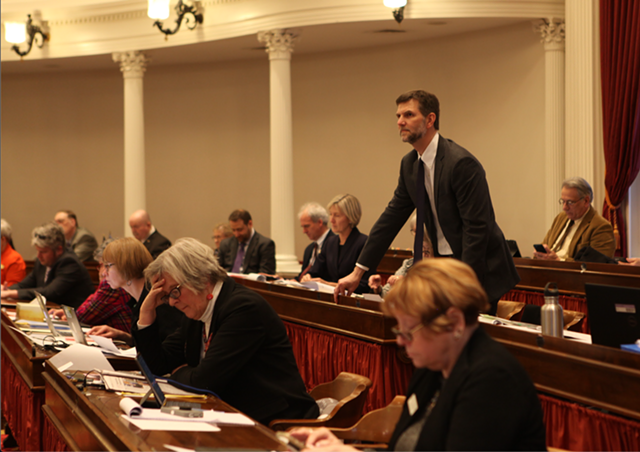
- File: Kevin McCallum ©️ Seven Days
- Tim Briglin
Lawmakers appear to have the two-thirds votes in each chamber necessary for an override. The House version of the bill passed 105-37 in February, and the similar Senate version passed 23-5 in June.
The House now needs to concur with the Senate changes, after which the bill would go straight to the governor’s desk. He would have five days from receipt to either sign or veto it.
Backers are hoping Scott will see its broad support as a sign that it’s time for the state to back up its goals with action. Johanna Miller, director of the energy and climate program at the Vermont Natural Resources Council, said she has appreciated the governor’s leadership in the COVID-19 pandemic.
“I would have wished he would have stood up to recognize the need and opportunity to respond to a different crisis — the climate,” Miller said. “I hope he will.”
The bill would require the state to reduce greenhouse gas emissions to 26 percent below 2005 levels by 2025; 40 percent below 1990 levels by 2030; and 80 percent below 1990 levels by 2050. It would create a 23-member Vermont Climate Council responsible for approving the plan that the Agency of Natural Resources would be charged with implementing.
Scott has questioned the size and constitutionality of such a panel. He wants a smaller group made up of administration officials, with an advisory board representing a wide range of disciplines and industries.
Rep. Tim Briglin (D-Thetford), the chair of the House Energy and Technology Committee, said he understands concerns about the council being unwieldy, but it would offer a diversity of ideas.
“I think we need to take into account a wide vantage point of different stakeholder views in putting this plan together,” Briglin said.
Residents would be able to sue, but not for damages, he noted. They could convince a judge to order the state to work harder to meet its targets. Claims that attorneys would tie the state up in court and force it to pay huge sums are simply not accurate, he said.
He acknowledged the state might have to pay reasonable costs and legal fees of successful plaintiffs, but noted the law also allows for the state to recoup its costs in frivolous suits, he said.
“There won’t be a lot of attraction to the Global Warming Solutions Act as a place for plaintiff’s attorneys to make a living,” Briglin said.
Walke worries, however, that the courts are not ideal forums for climate solutions.
“Using litigation as an accountability measure is a long and costly process,” he said.
And under the framework outlined in the bill, a judge would only be able to order the state to adopt more stringent emissions rules, which is only one way of achieving goals.
Other measures, like financial incentives to encourage people to buy electric cars or switch to cold climate heat pumps, are not things a judge can order, but programs the government would need to expand, Walke said. The legislature should hold whatever administration is in power accountable if it doesn’t meet the goals, he said.
Briglin noted that the Agency of Natural Resources already has broad authority to regulate greenhouse gas emissions.
“We’re actually not broadening authority or power in this bill, ” Briglin said. “That already exists. We are trying to focus state government on taking action to address these issues.”






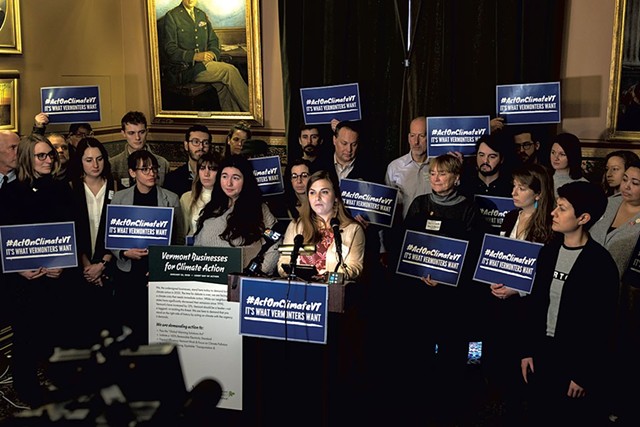

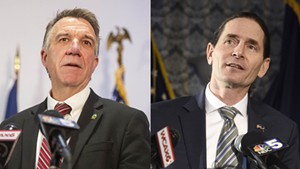

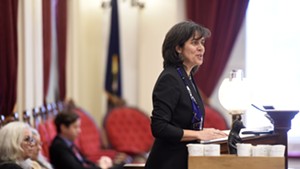
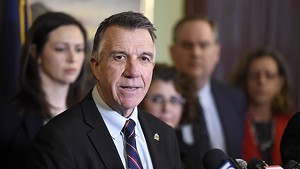





Comments
Comments are closed.
From 2014-2020, Seven Days allowed readers to comment on all stories posted on our website. While we've appreciated the suggestions and insights, right now Seven Days is prioritizing our core mission — producing high-quality, responsible local journalism — over moderating online debates between readers.
To criticize, correct or praise our reporting, please send us a letter to the editor or send us a tip. We’ll check it out and report the results.
Online comments may return when we have better tech tools for managing them. Thanks for reading.